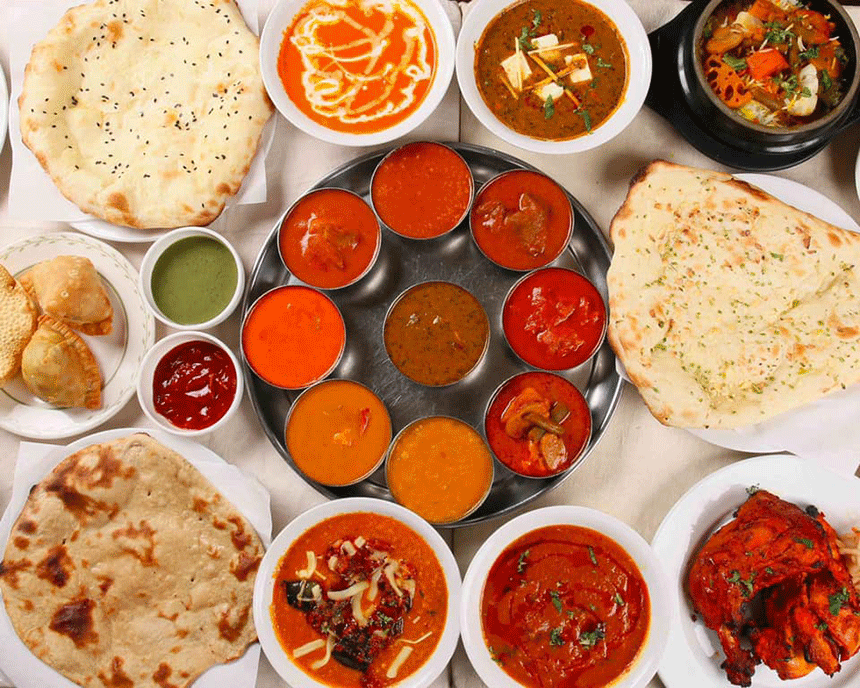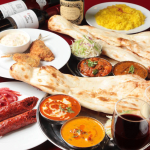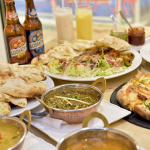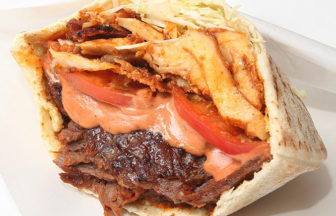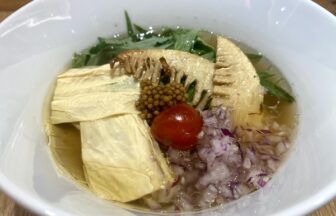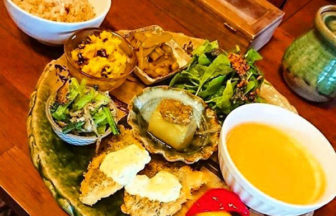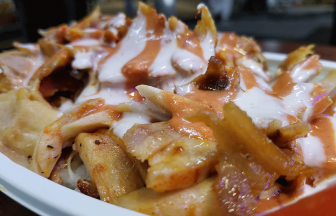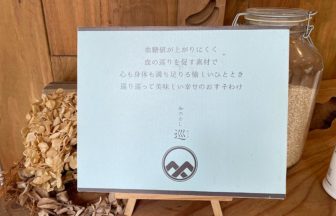SAMRAT’s Naan and Curry, have a lot of fans, sticking to commitment.
SAMRAT is a long-established Indian food chain restaurant founded in 1980. Have few stores, mainly in Tokyo.
The Curry House Takanawa branch is a 2-minute walk from the Tokyo Metro Namboku Line, Mita Line and Shirokane Takanawa Station. You can enjoy authentic Indian food in the casual store, which also can be used as a cafe.
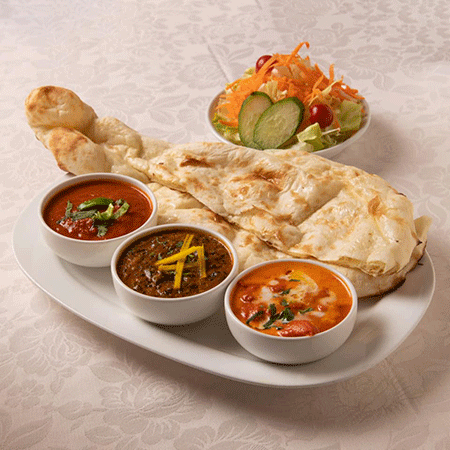
3 flavor-curry set
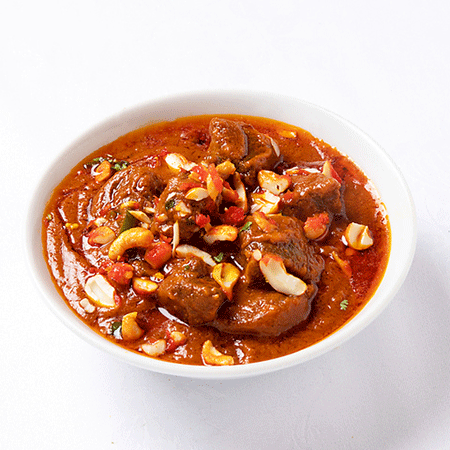
Mutton masala curry
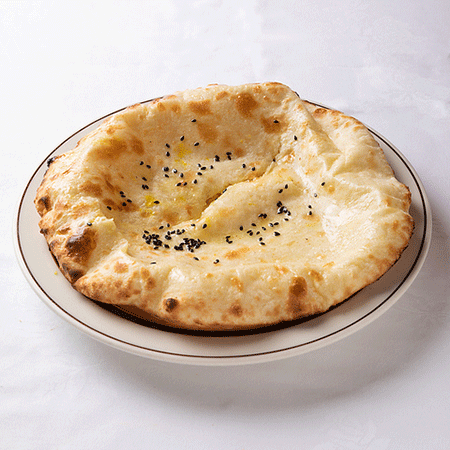
Cheese naan
SAMRAT’s naan is very particular about high quality flour. It is cooked one by one by an Indian chef in a tandoori kettle. And it brings the best combination with SAMRAT’s curry.
The mild, creamy curry that fills your mouth is not too sweet, and has a well-balanced flavor.
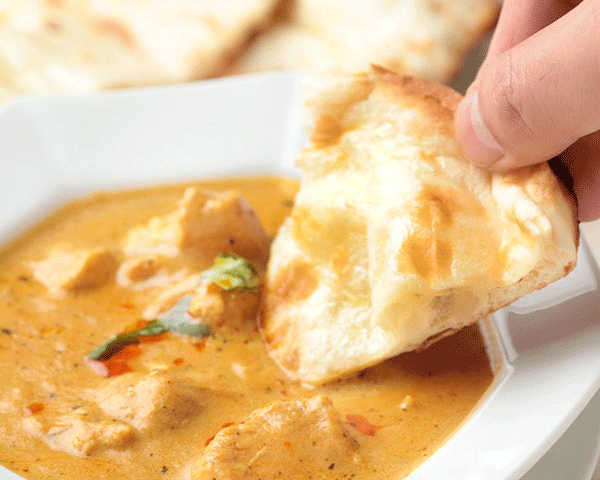
Butter chicken
A Muslim manager checks each store and is very particular about Halal
At the time of opening, SAMRAT did not support Halal and had no certification.
The meat used domestic chicken and other products, but at one point the price remained so high that it was difficult to stock up.
When the store was looking for other meat to use, the CEO met Pakistani trader who handles Halal imported meat. Because of the stable supply and cost, they decided to switch all meat suppliers to Halal meat.
It seems that the current CEO seeks to obtain Halal certification. He was strict about business. He thought, in order to use Halal meat and run business properly, the store must obtain Halal certification.
Samurat has a factory in Ogikubo. Not only the restaurant, but the products, such as retort curry and naan, have obtained the Halal certification of the Japan Asian Halal Association.
The owners and chefs are not Muslims, but Samrat has a Muslim manager. It seems that the manager also agreed to the idea of obtaining Halal certification in Japan.
They also have a desire to convey the food culture of India to Japan and to protect the food safety of Muslims.
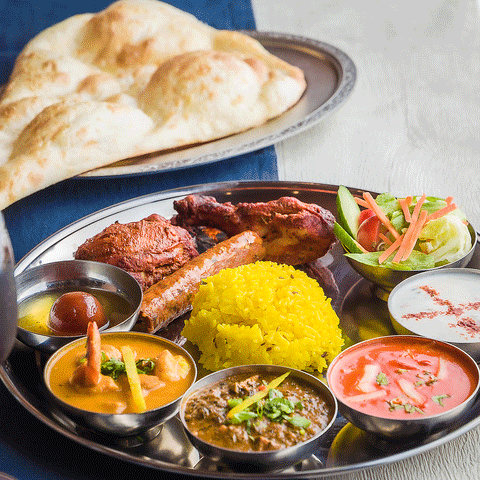
Thali
Even if it’s named as Indian restaurant, many Nepalese stores use pork.
SAMRAT has Indian chefs. SAMRAT provides all menu in Halal, and Muslim quality control is supervised by the chefs, so Muslims can eat with confidence!
Supervisor / Recommender

- Halal Supervisor and Foreigner Food Coordinator (Cooking, Consulting, Public Relations)
-
Click here for introduction
I currently work as an editor, but my previous job was as a chef, with many years of experience working in hospitals, restaurants, and the food service industry. Looking back, I think my connection to halal may have already been there.
Decades ago, I once worked in a cafeteria at an auction venue. Over 60% of the visitors were foreigners. Many Muslims were present, and the venue had a mosque-like prayer space. I remember being frequently asked questions about whether the meat was halal and what kind of meat it was. At certain times, the cafeteria would become as lively as a festival. The Indian restaurant next door would generously serve free biryani, curry, and sweet drinks to everyone who came. Over 100 people, including people wearing bright red turbans, galabeyas, and traditional attire, gathered in the cafeteria, all sitting around the same table and enjoying a truly enjoyable time. Looking back, it was iftar, the end of fasting, and I understand the significance of sharing, but at the time I was ignorant of halal and Islam, and didn't even consider how to respond. They only ate the curry made by the Indians in the restaurant. As I studied halal, I realized, "I wanted to eat Japanese food, but I couldn't." I regret not doing anything even though there was something I could have done.
If only it didn't contain pork! If only it didn't contain wheat or buckwheat! I could eat it... Food insecurity is different for each person.
That's why I think it's important to learn about the differences in culture, religion, and lifestyle that underlie it, and to create an environment where everyone can enjoy delicious meals in comfort.
The desire for delicious, safe, and secure food is universal. The times are calling for people to live in new ways that transcend borders and religions. I hope that halal can be a gateway to eliminating food insecurity, contributing even in some small way to a society where people can coexist and prosper with more liberal thinking, and to global harmony beyond.
Latest entries
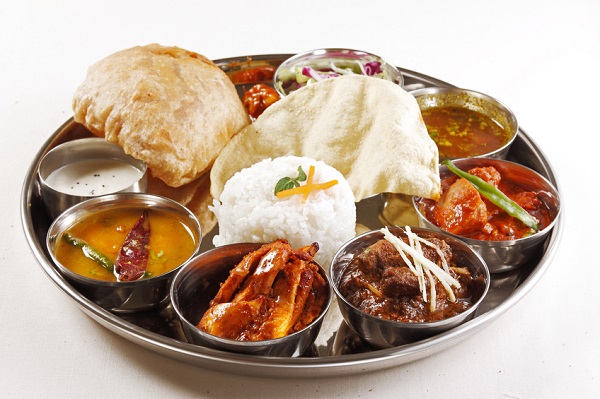 Tokyo2023年11月4日Dakshin South Indian Restaurant Otemachi Branch
Tokyo2023年11月4日Dakshin South Indian Restaurant Otemachi Branch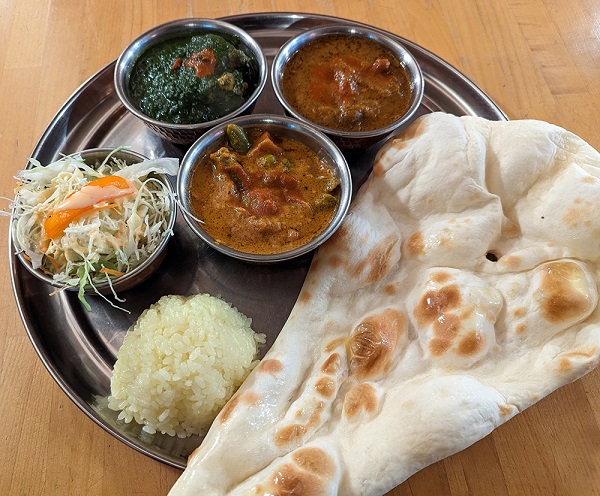 Tokyo2023年10月23日Gandhi Mahal
Tokyo2023年10月23日Gandhi Mahal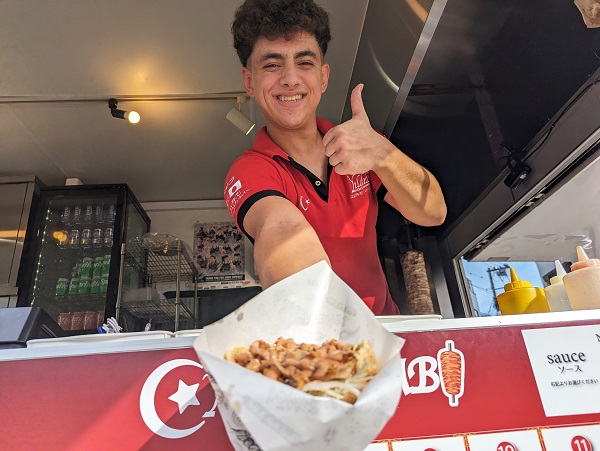 Tokyo2023年10月23日Yıldız KEBAB
Tokyo2023年10月23日Yıldız KEBAB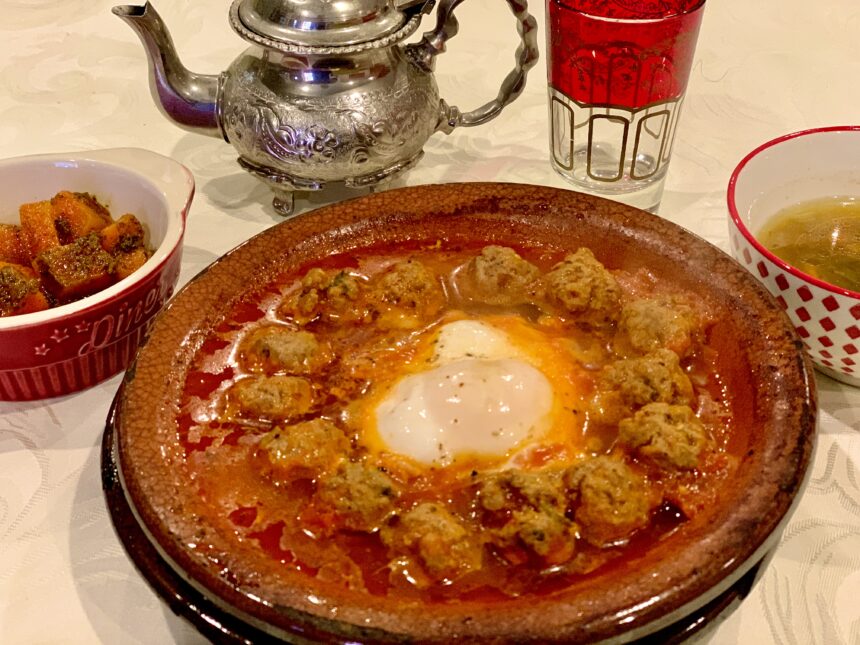 Tokyo2023年10月4日Restaurant Morocco
Tokyo2023年10月4日Restaurant Morocco

